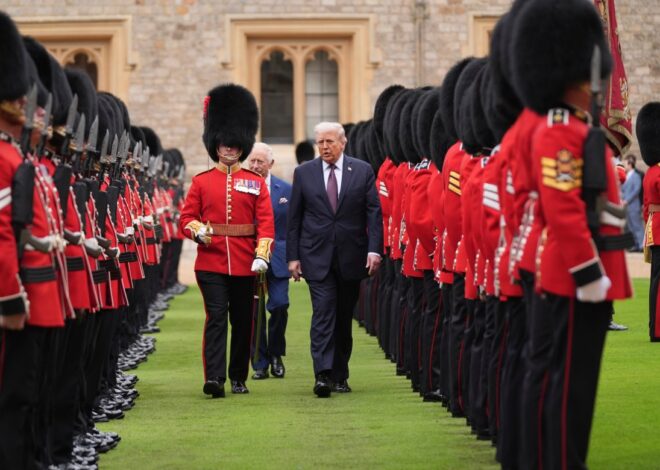
Tests show Navalny was poisoned in jail, his widow says

Navalny’s Widow Claims Poisoning in Prison Led to His Death
In a recent video shared on social media, Yulia Navalnaya, the widow of the late Russian opposition leader Alexei Navalny, asserted that her husband was poisoned while incarcerated in an Arctic penal colony. This revelation comes on the heels of tests conducted on biological samples that were smuggled out of Russia, which Yulia claims confirm that Navalny was murdered.
Claims of Poisoning
Yulia Navalnaya stated that two independent laboratories in different countries analyzed the samples and concluded that her husband had been poisoned. However, she did not disclose specific details regarding the type of poison, the nature of the samples, or the methodology of the analyses. Instead, she urged these laboratories to publicly release their findings, suggesting that political pressures may be preventing them from doing so. “They don’t want an inconvenient truth to surface at the wrong time,” she remarked.
Navalny’s death on February 16, 2024, at the age of 47, has raised numerous questions, particularly among his supporters and colleagues. They have long contended that the Russian government played a role in his demise. Navalny, known for his anti-corruption campaigns and as a prominent opposition figure, had previously survived a poisoning incident in 2020 involving a Novichok nerve agent. Upon his return to Russia, he was arrested at the airport and subsequently sentenced to prison on what many believe were politically motivated charges.
Circumstances Surrounding Navalny’s Death
Yulia Navalnaya described the harrowing final days of her husband, citing testimonies from prison staff that have not been independently verified. According to her account, on the day of his death, Navalny was taken outside for a walk but soon fell ill. Upon returning to his cell, he reportedly lay on the floor, curled up in pain, and began to vomit. “Alexei was having convulsions… the prison guards watched [his] agony through the bars of the cell window,” she recounted.
Despite his evident distress, an ambulance was not called until 40 minutes after he became ill, and he died shortly thereafter. Following his death, prison authorities informed his mother, Lyudmila, that her son had succumbed to “sudden death syndrome.” State investigators later attributed the cause of death to a medical condition and arrhythmia.
Navalny’s Legacy and Impact
Yulia Navalnaya emphasized that her husband was not only her partner but also a beacon of hope for many Russians. “I know he was a symbol to you too,” she stated, referencing the thousands who attended Navalny’s funeral in Moscow, despite government warnings against doing so. She accused President Vladimir Putin of being responsible for her husband’s death, asserting, “I affirm that Vladimir Putin is guilty of killing my husband, Alexei Navalny.”
The Kremlin has thus far remained silent on Navalnaya’s recent statements. Dmitry Peskov, the Kremlin spokesman, indicated that he was unaware of her claims.
In the wake of Navalny’s death, his associates have circulated images purportedly showing the conditions in his prison cell, including the exercise yard where he reportedly collapsed. These images serve to highlight the dire circumstances Navalny faced during his incarceration.
The Broader Context of Opposition in Russia
Navalny’s passing marks a significant loss for the Russian opposition movement, which has been increasingly stifled in recent years. Following Russia’s full-scale invasion of Ukraine in February 2022, the government intensified its crackdown on civil society, implementing punitive laws that led to mass arrests of dissenters. Many of Navalny’s associates have either been imprisoned or have fled the country, while Yulia Navalnaya remains in a precarious position, facing potential arrest as she continues her husband’s work from abroad.
Despite the risks, Navalnaya is determined to keep her husband’s legacy alive. She has vowed to continue fighting for justice and accountability regarding his death. The absence of significant opposition gatherings in Russia since Navalny’s funeral underscores the chilling effect of government actions on dissent.
Conclusion
Alexei Navalny’s life and tragic death have spotlighted the challenges facing opposition figures in Russia. As Yulia Navalnaya continues to advocate for transparency regarding the circumstances of her husband’s death, the international community watches closely. The implications of Navalny’s demise extend beyond one individual, representing a broader struggle for democracy and human rights in Russia.
Key Facts
– Alexei Navalny died on February 16, 2024, while serving a prison sentence in an Arctic penal colony.
– Yulia Navalnaya claims he was poisoned, supported by tests from two laboratories.
– Navalny had previously survived a Novichok poisoning in 2020.
– His death has been attributed to “sudden death syndrome” by prison authorities and later state investigators.
– Yulia Navalnaya accuses Vladimir Putin of being responsible for her husband’s death.
– The crackdown on opposition in Russia has intensified since the invasion of Ukraine in 2022.
Source: www.bbc.com


